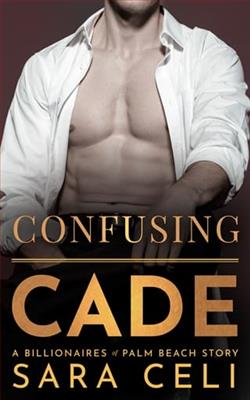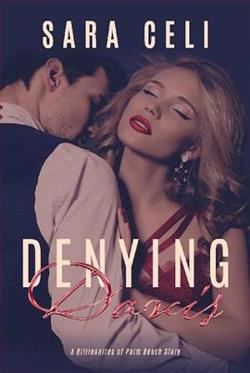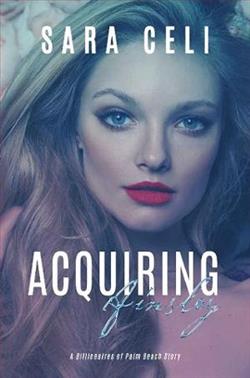Page 56 of Betray Me
The words hit me like ice water. I stop walking, my expensive heels clicking against the weathered boardwalk as I turn to face her. “Are you?”
She shrugs, pulling her jacket tighter against the chill. “I don’t know. Part of me thinks I should finish what I started. Get my degree, prove that I’m more than just a victim of my family’s crimes.” Her green eyes meet mine, searching. “What about you?”
“I have to go back.” The admission tastes bitter on my tongue. “My parents are still… active. Still in control of my life, my finances, my future. They expect me to graduate with honors, to maintain the family reputation while their legal troubles get sorted out.”
Luna’s expression darkens with understanding. “They’re making you pretend everything is normal.”
“Normal is a luxury I can’t afford.” I resume walking, needing movement to combat the restless energy building in my chest. “Father calls it ‘damage control.’ Mother prefers ‘maintaining appearances.’ I call it survival.”
“And if you refuse?”
The question hangs between us like a blade. I think of my father’s cold blue eyes, the way his voice drops to that dangerous whisper when he’s displeased. The memory of Morrison’s hands on my eleven-year-old body flashes through my mind—a reminder of what happens to Gallagher daughters who don’t perform their assigned roles.
“I don’t refuse,” I say simply. “I can’t.”
Luna nods, and I see my own trapped desperation reflected in her face. We understand each other in ways that no one else could—two daughters of the network, shaped by the same system but molded for different purposes.
“It would be strange,” she muses, “going back there. Facing all those people who watched everything unfold. Who knows what our families did.”
“They’ll treat you like a hero,” I say, unable to keep the bitterness from my voice. “The brave whistleblower who brought down the Queens. They’ll probably throw you a parade.”
“And they’ll treat you like a pariah.”
“Or a curiosity. The Gallagher daughter who testified against her family’s allies but hasn’t had the courage to turn on her own blood.” I laugh, but there’s no humor in the sound. “Either way, I’ll be alone.”
Luna stops walking, her hand reaching out to touch my arm. The contact is brief but warm, a gesture of comfort I don’t deserve but desperately need.
“Not alone,” she says quietly. “I might take the rest of the year off, but after that, I’ll be there too.”
The simple statement nearly breaks me. After everything I did to her—the surveillance, the manipulation, the systematic destruction of her privacy and peace—she’s offering companionship. Not forgiveness, exactly, but something that might eventually lead there.
“Why?” The question escapes before I can stop it. “Why would you want to be around me? Why risk the association?”
Her smile is sad but genuine. “Because I understand what it’s like to have no choice. Because we’re both survivors, even if we survived differently.” She resumes walking, her pace slowernow, more thoughtful. “And because I think we might be stronger together than apart.”
The idea of returning to Shark Bay with Luna as something approaching an ally rather than an enemy is both terrifying and oddly comforting. The Gothic spires won’t seem quite so menacing if I’m not facing them entirely alone.
“There’s something else,” I say, my voice dropping to barely above a whisper. “Something I need to ask you about the parties.”
Luna’s steps falter slightly, her body tensing with recognition of where this conversation is heading. “What about them?”
“Do you remember all of them?” The question feels like walking on broken glass, each word cutting deeper. “Every detail, every moment, every person who was there?”
She’s been quiet for so long that I wonder if she’s going to answer. When she finally speaks, her voice is barely audible over the sound of waves against the harbor wall.
“No. There are gaps. Hours, sometimes entire nights, where everything is just… black.” Her hands clench into fists at her sides. “My therapist says it’s normal, that trauma can fragment memory. But sometimes I wonder what happened during those missing hours.”
Relief floods through me so powerfully that I have to stop walking again. “I have gaps, too. Whole nights where I remember arriving at a party and then nothing until I woke up the next morning with…” I swallow hard, the memory of blood under my fingernails still fresh despite the years that have passed. “With evidence that something terrible happened.”
Luna turns to face me fully, her green eyes intense with sudden understanding. “Me too. And Belle?”
“Yeah?”
“I’m scared.” The admission seems to surprise her as much as it does me. “I’m scared of the memories that might surface. Scared of what I might remember about those missing nights. Scared of discovering that I’m the monster they tried to make me.”
Her honesty demands reciprocal vulnerability. “I’m terrified,” I confess. “Every day, I wonder if I hurt someone. If the guilt I carry is justified or if it’s another manipulation designed to keep me compliant.”
“Maybe that’s why we need each other,” Luna suggests. “To remind ourselves that we were children when this started. That whatever happened, whatever we did or didn’t do, we were victims first.”















